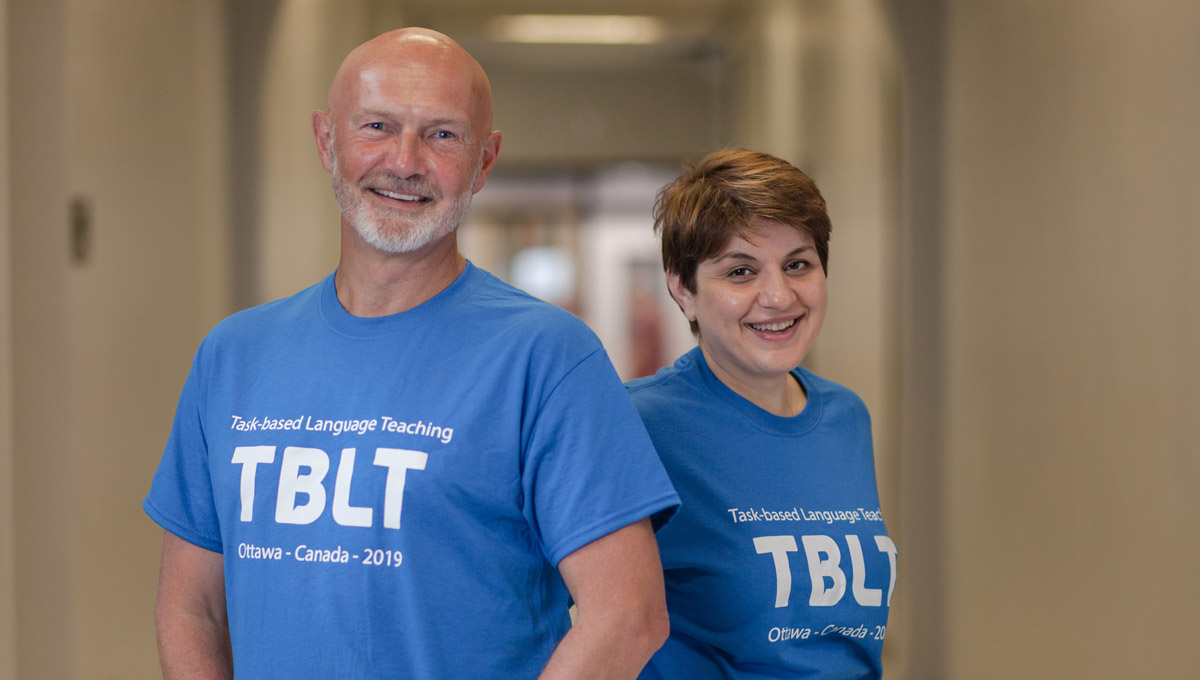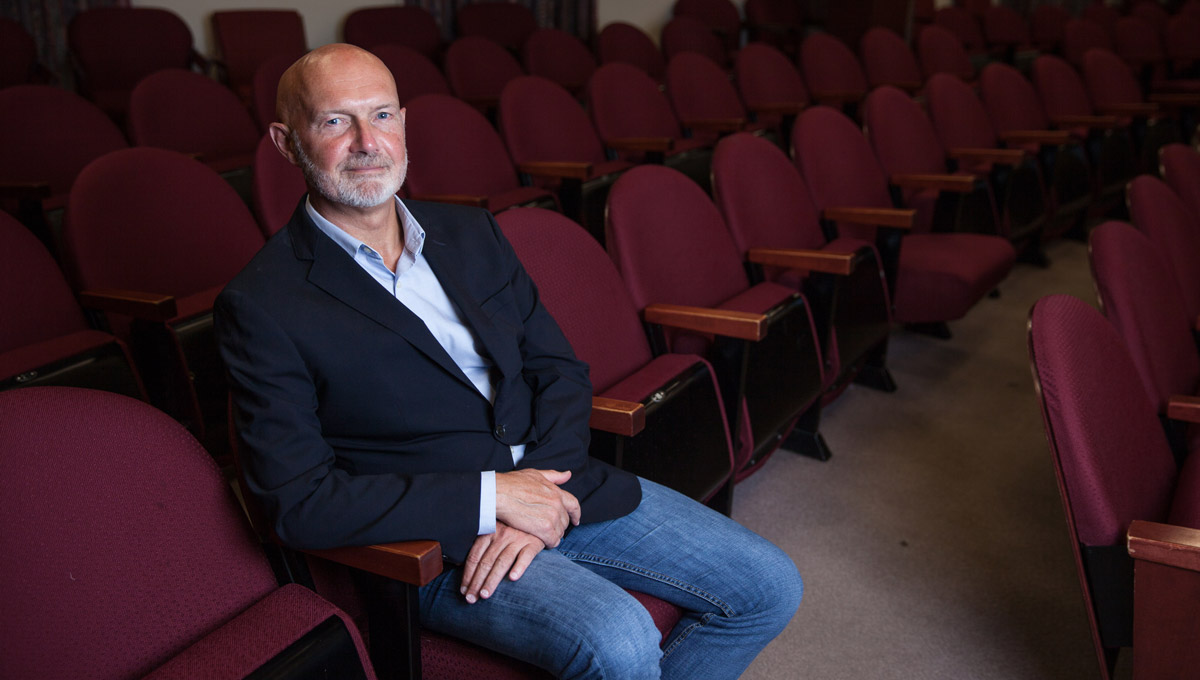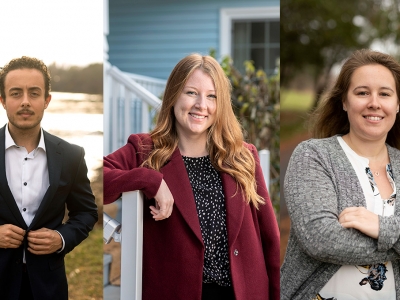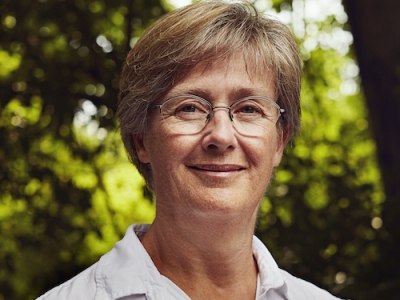By Joseph Mathieu
Photos by Fangliang Xu
“In traditional language classes, students often repeat what the teacher tells them to repeat.”
So says Prof. Eva Kartchava at Carleton University’s School of Linguistics and Language Studies (SLaLS). “To this day, people tend to be taught rules of the language and asked to do fill-in-the-blanks exercises.”
This method of repetition and memorizing language rules doesn’t always lead to fluency. In fact, sometimes it can impede a learner’s progress.
That’s where task-based language teaching (TBLT) comes in. It’s a relatively new kind of approach that takes centre stage at Carleton University from Aug. 19 to 21.

Profs. David Wood and Eva Kartchava
The Eighth International Conference on Task-Based Language Teaching will feature some of the world’s foremost scholars and practitioners of the approach. The biennial conferences began in Belgium in 2005 and are hosted by the International Association for Task-Based Language Teaching. This year’s conference is the second to take place in Canada.
The idea is relatively simple. Students perform a meaningful task to help them learn a new language. Perhaps they follow directions to a venue, order something at a restaurant, or apply for a library card. Growing evidence suggests this is more effective than traditional memorization of language in a detached, decontextualized manner.
“Learners get to actually use the language they are learning to express what they intend to,” says Kartchava, “instead of repeating pre-determined items in a rote way.”

Broadening Horizons and Looking to the Future
Converging on the international conference are researchers, scholars and educators from around the world, including different public and private institutions from across Canada—including areas of Ontario, British Columbia and Alberta. The main working language is English, but presentations will focus on various additional language learning and teaching contexts that utilize TBLT.
The conference’s theme—Insight, Instruction, Outcomes—highlights its objectives: broadening horizons, looking to the future and promoting professional development.
“This means professional development not only for teachers but also for us researchers because, I think, we are always looking for ways to push the envelope a little further,” says Kartchava, who headed the conference organizing committee.
She will be attending as an organizer and a research presenter: she teaches Applied Linguistics and conducts classroom-based research.
“I would like to increase my understanding about TBLT theory, instructional practices and assessment strategies,” says Kartchava. “I’d also like to get ideas for research projects that I might want to undertake.”
Showcasing New Perspectives on Language Teaching
This year’s iteration will host close to 280 attendees, with more than 100 presentations, invited colloquia and workshops, and five keynote speakers. The presence of eminent scholars is an exciting opportunity for Carleton students who are volunteering and presenting their research, says Kartchava. It allows them to connect with leading experts in the field and champion the strength of their university’s language teaching and research efforts.
SLaLS Director David Wood was instrumental with his support for the event, says Kartchava, as well as professors Jaffer Sheyholislami, Michael Rodgers and Geoffrey Pinchbeck, who played important organizing roles.
SLaLS offers a Certificate in Teaching English as a Second Language (CTESL) and the Teaching English in Global Contexts specialization as part of the Bachelor of Global and International Studies (BGINS). It also offers a Master of Arts and a PhD in Applied Linguistics and Discourse Studies to prepare language teachers for the workplace in Canada and abroad. The school is home to the English Language Learning & Teaching Initiative, which supports and trains ESL learners and teachers from around the world.
Attendees of the three-day conference range from scholars doing research within the framework who will glean new perspectives for their approaches, to practitioners who hope to learn new tips and tricks to using TBLT.
Several show-and-tell sessions will allow practitioners from all over the region, Canada, and the world to share successes and failures.
“I find that colleagues learning from the experiences of other colleagues can ignite their resolve to push the existing boundaries of task-based learning, yielding even more questions to pose and research,” says Kartchava.
“Either way, it will be a very interesting opportunity for all involved to learn and grow.”
Wednesday, August 14, 2019 in Faculty of Arts and Social Sciences, Linguistics
Share: Twitter, Facebook



